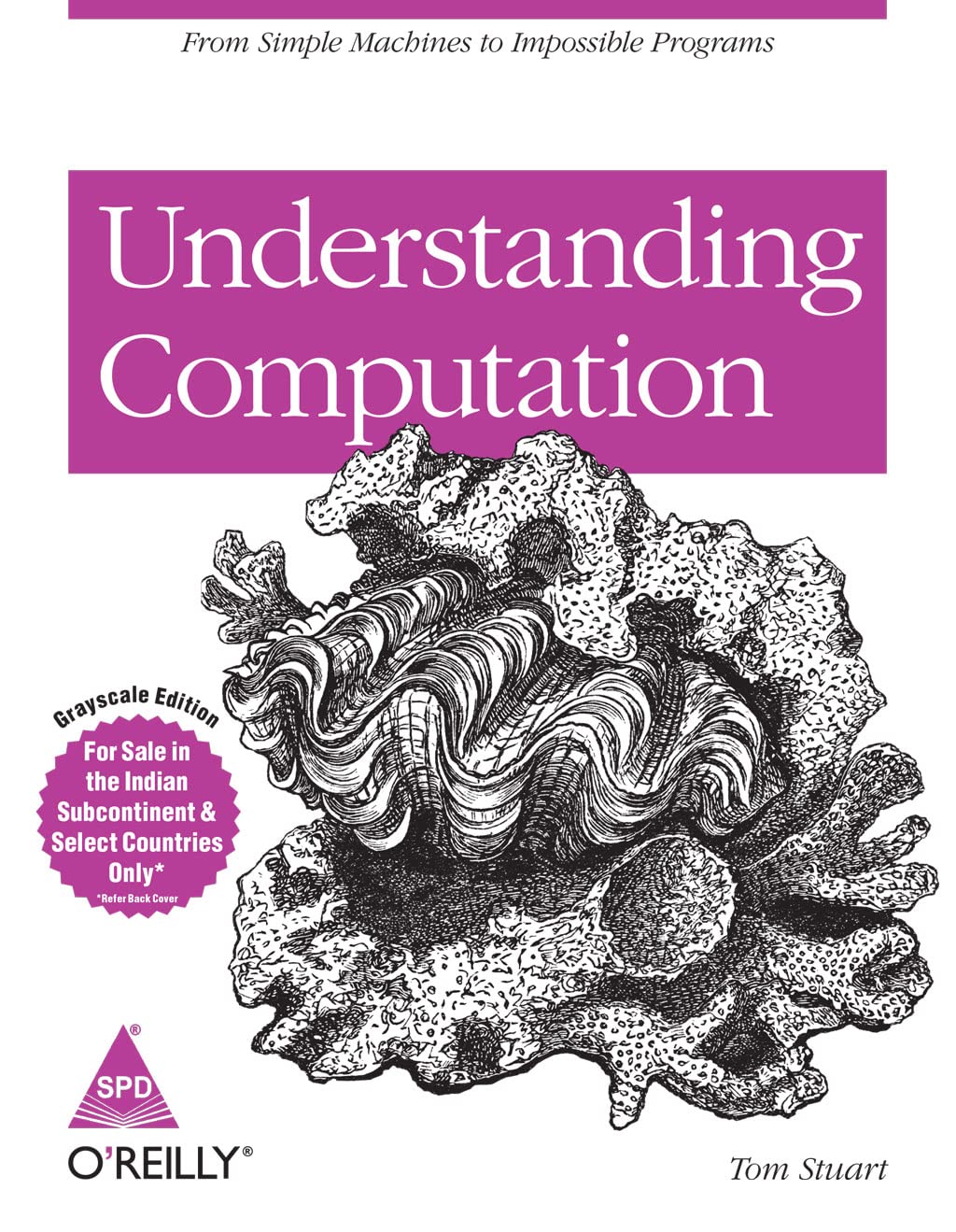1
/
of
1
BOOKZONE
Understanding Computation: From Simple Machines to Impossible Programs
Author : Tom Stuart
Binding:Paperback
Publication Date
Publisher :
SKU:9789351101680
Select Your Gift
Select a Gift Wrap
Please select a gift wrap
Gift Message (Optional)
Regular price
₹743.75INR
Regular price
₹875.00INR
Sale price
₹743.75INR
Shipping calculated at checkout.
Bulk Discount Get Exta 5% upto 10%
Share

1
/
of
1
"Finally,you can learn computation theory and programming language design in anengaging, practical way. Understanding Computation explains theoreticalcomputer science in a context youll recognize, helping you appreciate whythese ideas matter and how they can inform your day-to-day programming.
View full details


